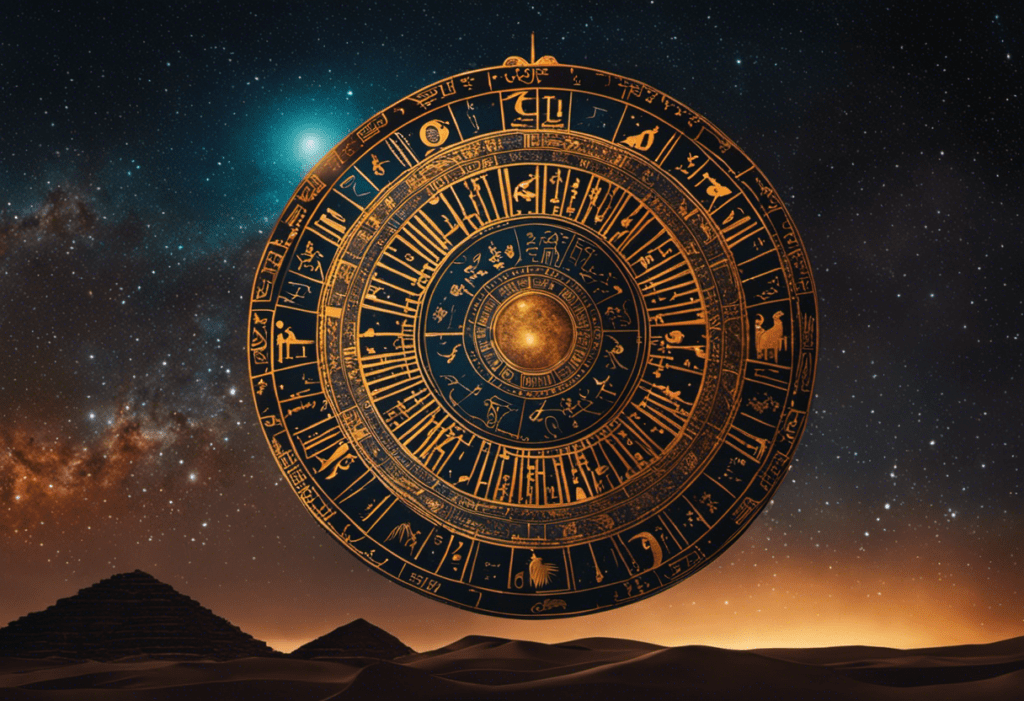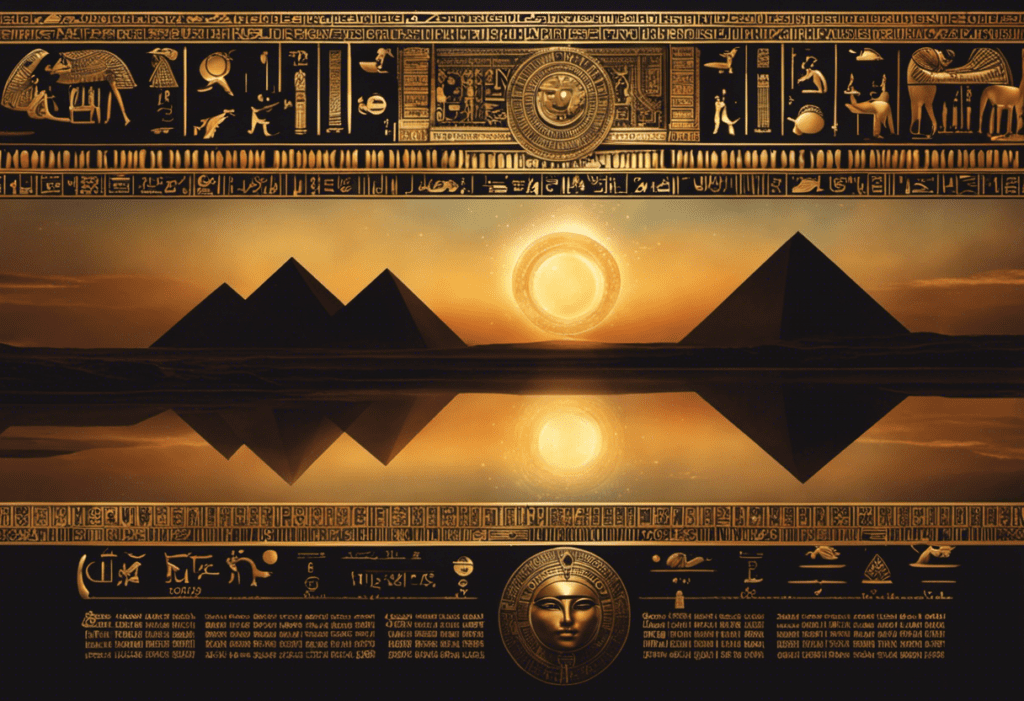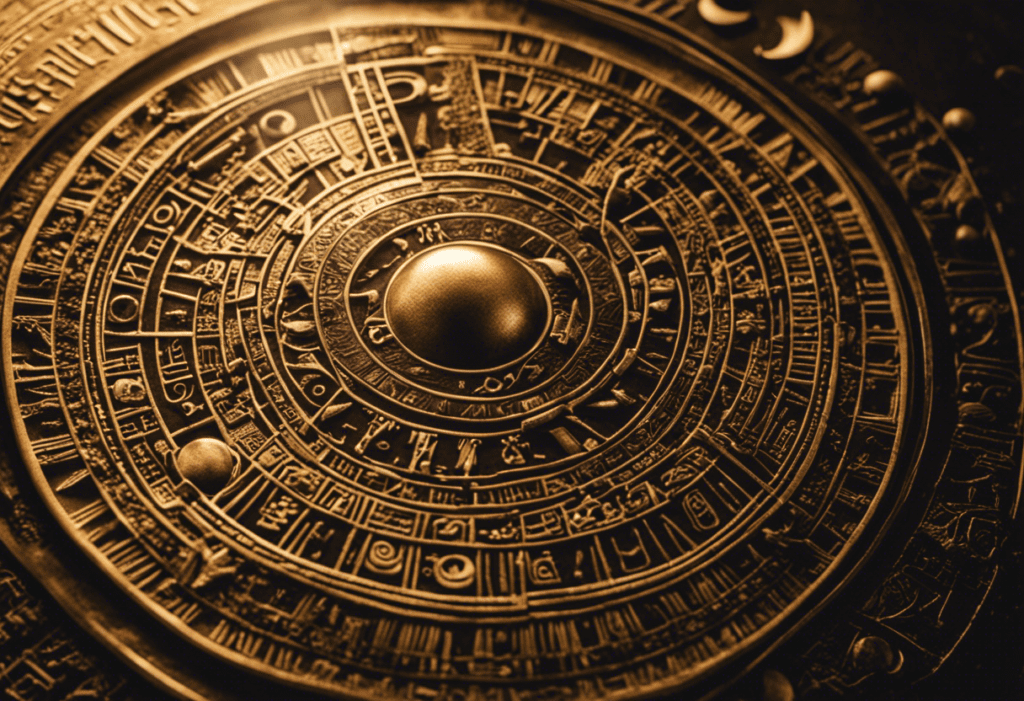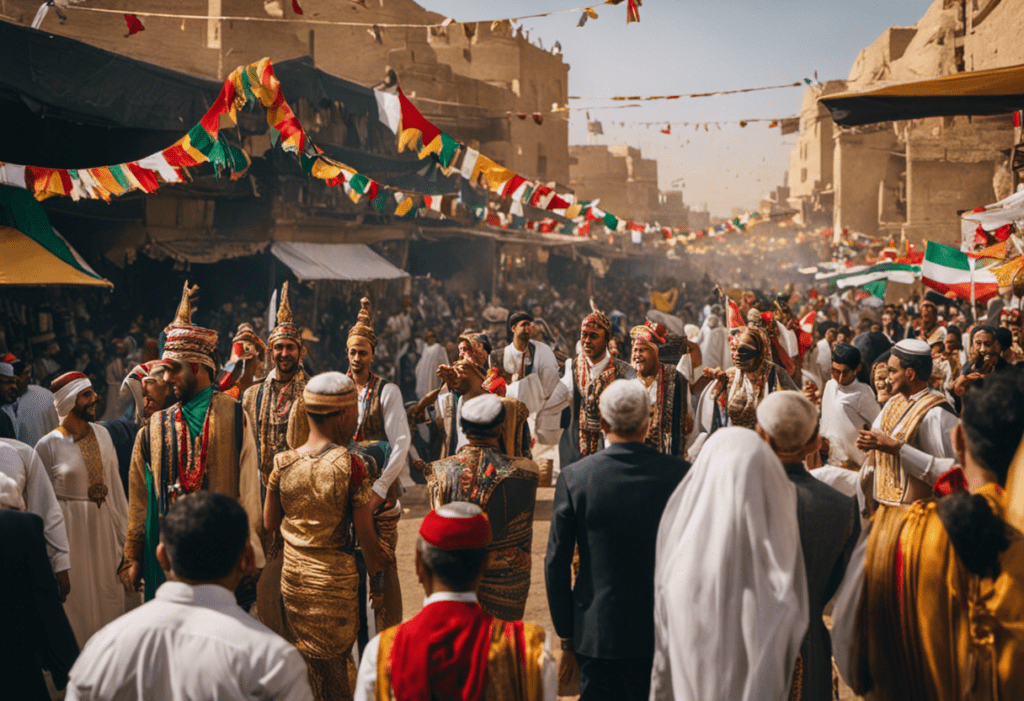Did you know that the ancient Egyptians were not only skilled astronomers but also avid practitioners of astrology?
In this article, we delve into the intriguing world of the Egyptian calendar and the zodiac, exploring the origins, significance, and enduring legacy of their astrological beliefs.
By examining the role of astrology in ancient Egyptian society and its influence on modern astrology, we gain valuable insights into the fascinating intersection of ancient cultures and celestial phenomena.
Key Takeaways
- The Egyptian calendar was based on agricultural practices and the annual flooding of the Nile River, and it served as a structured system for measuring time.
- The Egyptian zodiac system consisted of 12 signs associated with specific deities, and it was used to determine personality traits and predict future outcomes.
- Astrology played a significant role in ancient Egyptian society, being considered a sacred science used to interpret celestial influences and make predictions.
- The enduring legacy of Egyptian astrological beliefs can be seen in modern astrological practices, with the Egyptian calendar and zodiac signs still being studied and referenced today.
Origins of the Egyptian Calendar
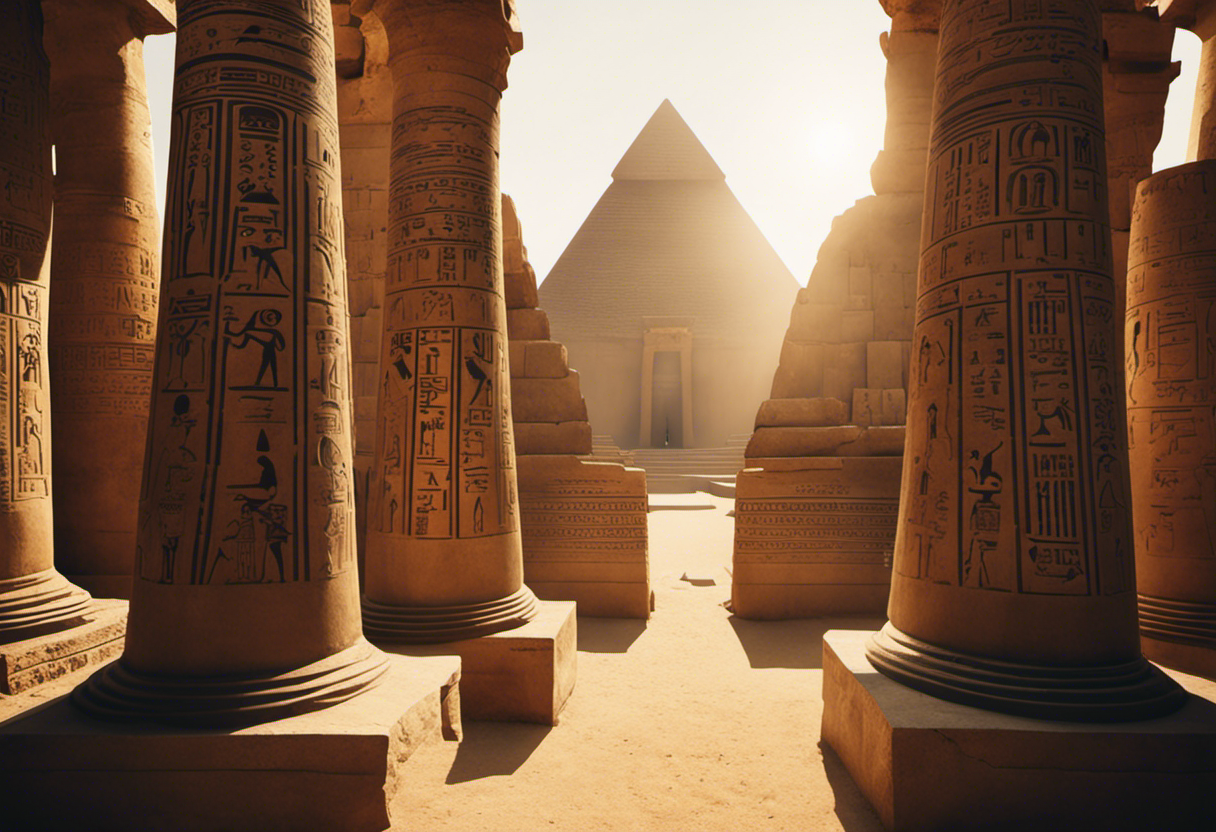

The origins of the Egyptian calendar can be traced back to the ancient civilization’s agricultural practices and their observation of celestial events. The Egyptian calendar was primarily based on the annual flooding of the Nile River, which was a crucial event for their agriculture. The flooding of the Nile brought fertile soil and water, allowing the Egyptians to cultivate their crops. They noticed that the flooding occurred at the same time each year and began to develop a calendar to track this important event.
In addition to agricultural practices, the Egyptians also paid close attention to celestial events. They observed the regular movements of the sun, moon, and stars, and noticed patterns and cycles. These observations led to the development of a solar calendar that divided the year into 12 months of 30 days each, with an additional five or six days added at the end to make up for the discrepancy between the lunar and solar years.
The Egyptian calendar was not only used for agricultural purposes but also had a religious and cultural significance. It played a vital role in determining important festivals, religious ceremonies, and events. The accuracy and precision of the Egyptian calendar system were a testament to the advanced knowledge and understanding of the ancient Egyptians.
Understanding the Egyptian Zodiac System
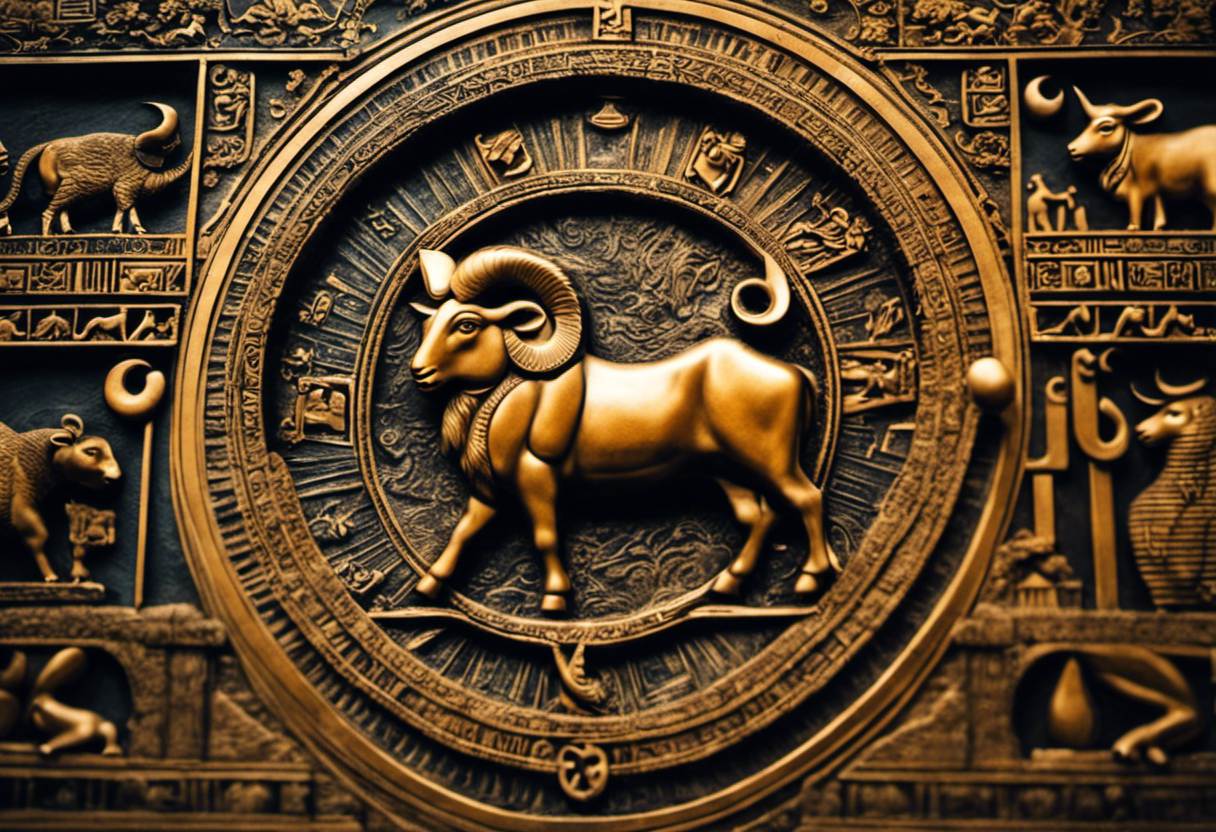

Within the Egyptian culture, the system of zodiac signs serves as a significant tool for understanding individuals’ personalities and predicting their future outcomes. The Egyptian zodiac is composed of 12 signs, each associated with a specific deity and corresponding to a particular time period throughout the year. This ancient astrological belief system is rooted in the concept that celestial bodies have a direct influence on earthly events and human behavior.
The Egyptian zodiac signs are closely tied to the annual flooding of the Nile River, which was a crucial event in ancient Egyptian agriculture. Each zodiac sign corresponds to a particular month, during which the characteristics and traits associated with the corresponding deity are believed to influence individuals born during that time.
The Egyptian zodiac signs are not only used to determine an individual’s personality traits but also to predict their future outcomes. By analyzing the alignment of the stars and planets at the time of a person’s birth, astrologers can provide insights into their potential career paths, relationships, and overall life journey.
Although the Egyptian zodiac system has ancient origins, it continues to be studied and practiced by astrologers and enthusiasts today. It offers a unique perspective on the influence of celestial bodies on human life, providing a framework for understanding and navigating the complexities of the human experience.
The Role of Astrology in Ancient Egyptian Society
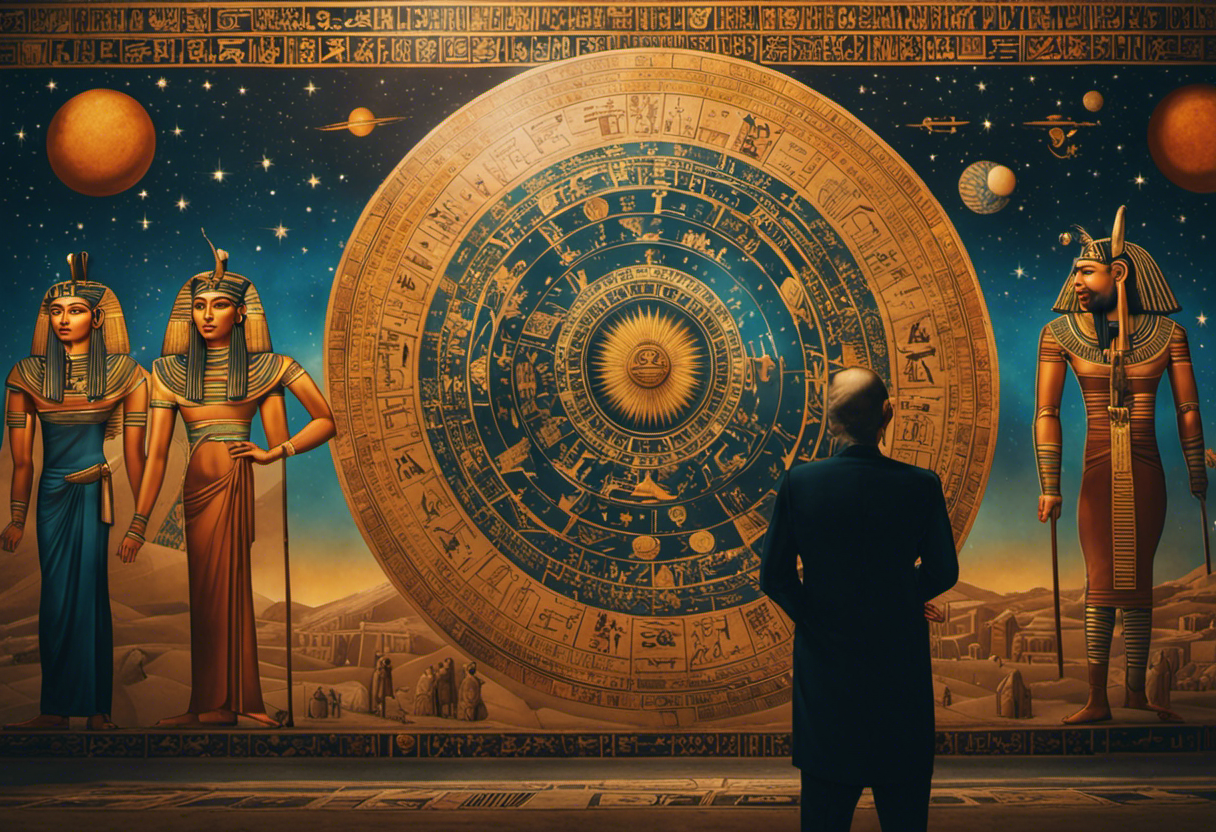

Astrology played a crucial role in shaping various aspects of society in ancient Egypt. The ancient Egyptians believed that the movement of celestial bodies had a direct influence on human affairs and natural phenomena, and they used astrology to interpret these influences and make predictions. Astrology was deeply intertwined with religion and was considered a sacred science. It was used to determine the most auspicious times for various activities, such as agricultural practices, construction projects, and even personal matters like marriage and childbirth.
The ancient Egyptians also believed that each person’s destiny was determined by the stars at the time of their birth. They used astrology to create individual horoscopes, which were consulted to gain insight into a person’s personality traits, strengths, weaknesses, and potential future events. Astrology was also used to identify the ruling deities associated with each individual, as well as to determine their compatibility with others.
In addition to its practical applications, astrology also played a significant role in the Egyptian concept of the afterlife. The alignment of stars and planets at the time of a person’s death was believed to influence their journey through the afterlife and their ultimate fate. Astrology was consulted to ensure that the deceased received the appropriate burial rites and to guide their journey to the realm of the gods.
Overall, astrology in ancient Egypt was not only a tool for prediction and guidance but also a fundamental aspect of their religious and social systems. Its influence permeated all levels of society, from the ruling elite to the common people, shaping their beliefs, practices, and everyday lives.
Interpreting the Egyptian Calendar and Zodiac Signs
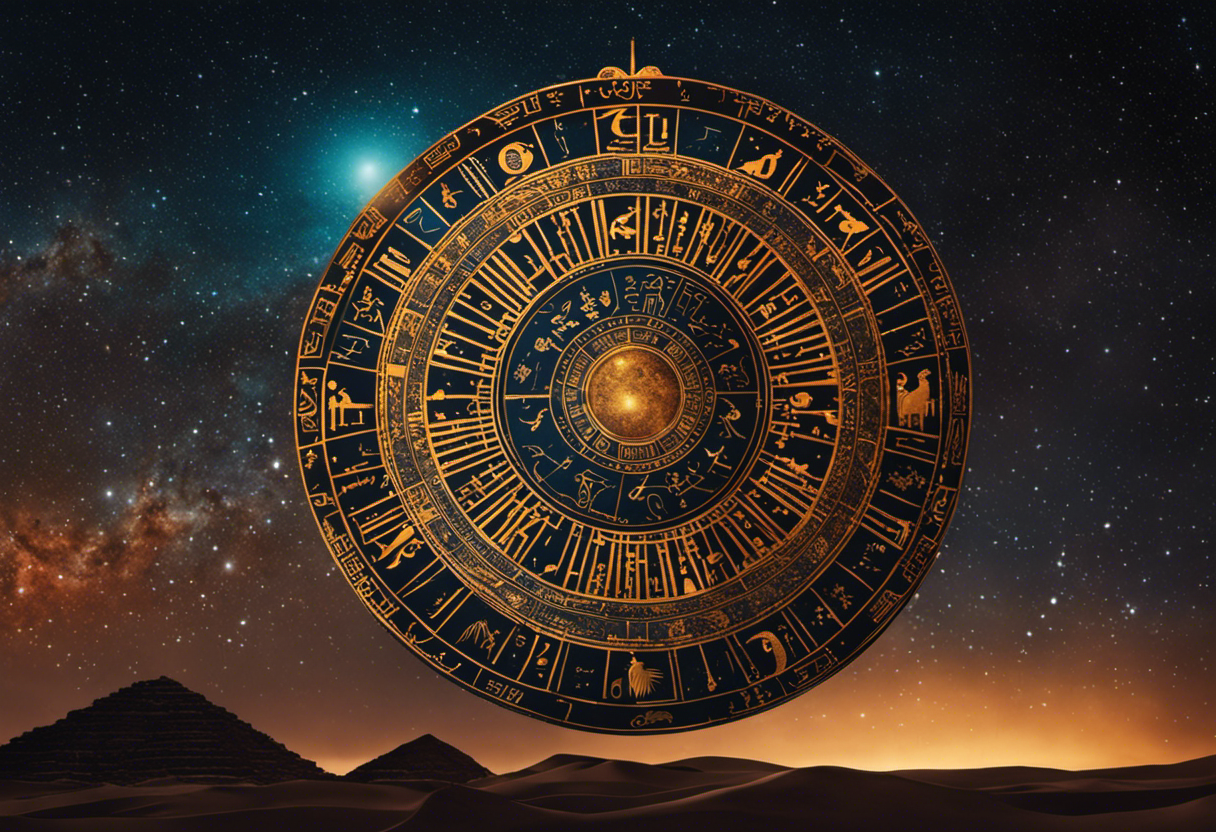

The interpretation of celestial patterns and time divisions in ancient Egypt was an intricate process that provided valuable insights into various aspects of their society and culture. The Egyptian calendar and zodiac signs played a significant role in this interpretation, offering a framework for understanding the movement of celestial bodies and their influence on daily life.
-
The Egyptian calendar was based on the cycles of the sun and the Nile River, with each month consisting of three ten-day weeks. The calendar was essential for agricultural activities, as it helped farmers plan their planting and harvesting seasons.
-
The zodiac signs in ancient Egypt were different from the familiar Western zodiac. Instead of twelve signs, the Egyptian zodiac had thirty-six decans, each representing a ten-day period. Each decan was associated with a particular deity or divinity, and individuals born during that period were believed to possess the qualities and characteristics of the associated deity.
-
The interpretation of celestial patterns and zodiac signs in ancient Egypt allowed priests and astrologers to make predictions about the future, provide guidance on various matters, and gain a deeper understanding of the spiritual and cosmic forces at play in their society.
Through their sophisticated interpretation of the celestial world, ancient Egyptians were able to navigate and make sense of their complex society, highlighting the deep connection they believed existed between the heavens and the earthly realm.
Legacy of the Egyptian Calendar and Zodiac in Modern Astrology
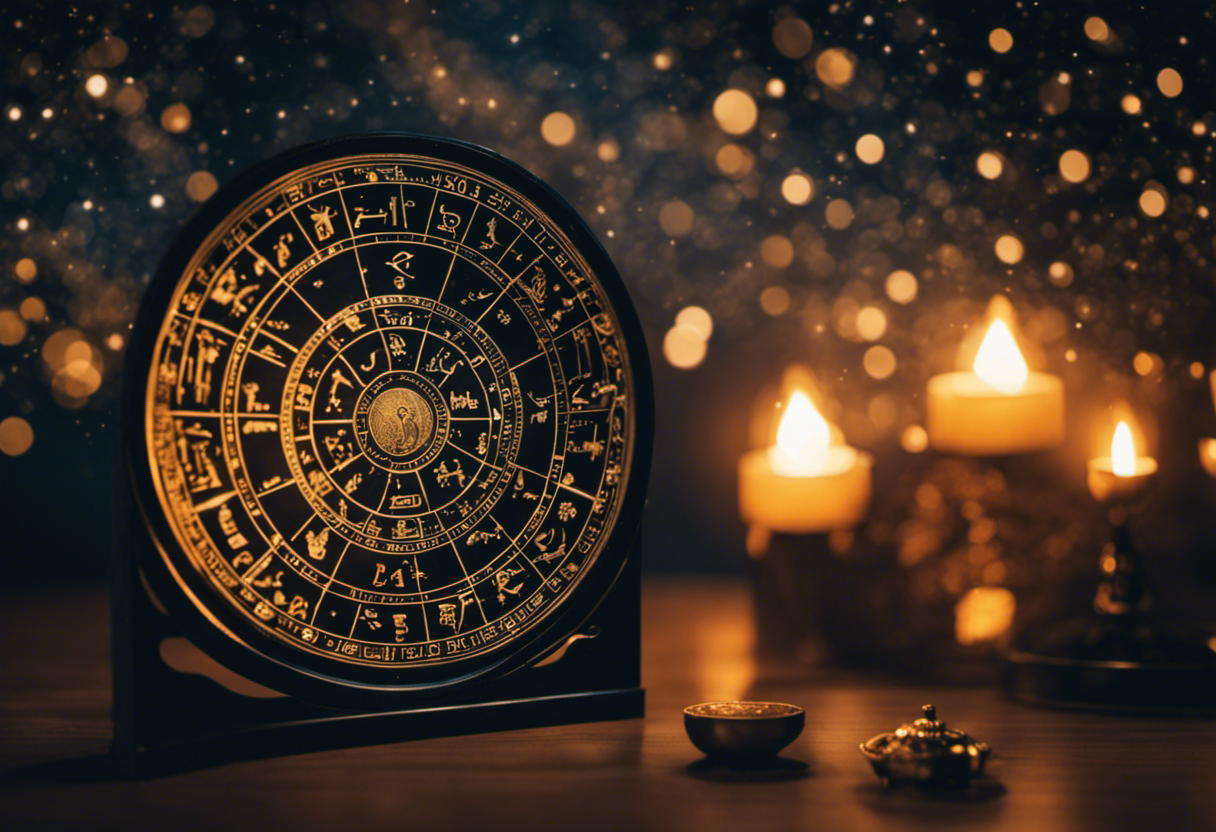

The influence of the Egyptian calendar and zodiac signs can still be seen in contemporary interpretations of celestial patterns and time divisions. Despite being one of the oldest known civilizations, the Egyptians made significant contributions to the field of astronomy and astrology.
The Egyptian calendar, with its 365 days divided into twelve months of thirty days each, laid the foundation for the modern Gregorian calendar used today. Additionally, the Egyptians developed a zodiac system based on the twelve constellations they observed in the night sky, which continues to be used in astrology today.
The legacy of the Egyptian calendar and zodiac signs can be seen in modern astrology through the continued use of their symbols and interpretations. Although the zodiac signs have evolved and taken on different meanings over time, their origins can be traced back to the Egyptian civilization. For example, Aries, Taurus, and Leo are all zodiac signs that were associated with Egyptian deities and their characteristics.
Furthermore, the Egyptian calendar’s influence can be observed in the way time is divided and measured in modern astrology. The concept of dividing the year into twelve equal parts and assigning specific characteristics to each month is still prevalent today. This approach allows astrologers to interpret celestial patterns and make predictions based on the position of the planets and stars at any given time.
Conclusion
In conclusion, the Egyptian calendar and zodiac system played a significant role in ancient Egyptian society.
The calendar allowed for the organization of time and events, while the zodiac system provided a framework for understanding individual characteristics and predicting future outcomes.
Today, the legacy of the Egyptian calendar and zodiac can be seen in modern astrology, where it continues to influence our understanding of the stars and their impact on human lives.
It is like a guiding constellation in the night sky.

